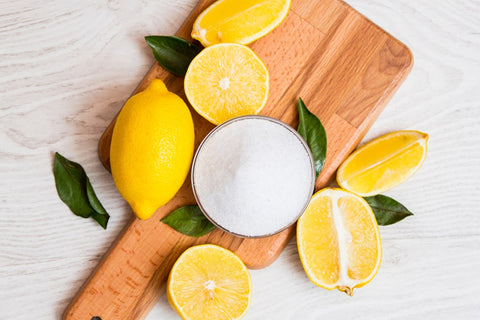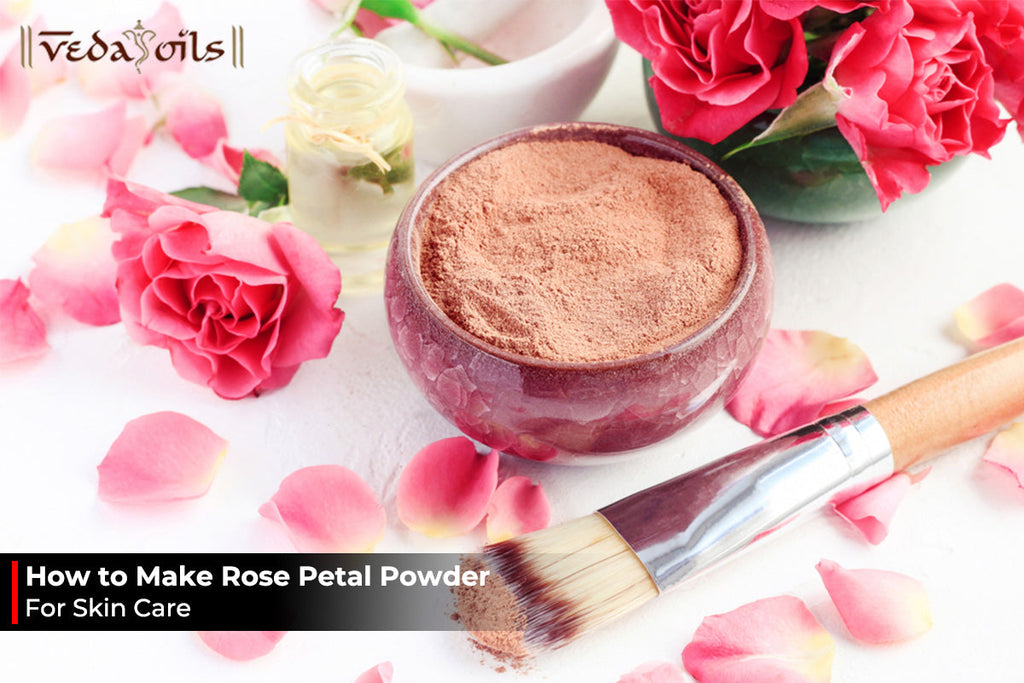Uses of Citric Acid: Uses of Citric Acid in Daily Activities
Citric acid, a natural compound derived from citrus fruits, offers various uses in daily activities. Its versatility and effectiveness make it a popular ingredient in various household products and DIY projects. From cleaning and disinfecting to cooking and preserving, citric acid is valuable to your daily routine.

This article will explore the many ways to use citric acid, providing practical tips and ideas to make the most of this multi-purpose substance. Discover the uses of citric acid's numerous benefits and applications and unlock its potential to simplify and enhance your everyday life.
Uses Of Citric Acid in Daily Activities
From household cleaning solutions to homemade beauty products, Citric Acid offers effective and eco-friendly alternatives. Let’s discover the uses of citric acid in daily acitivities.
Uses Of Citric Acid in Household Cleaning
Here are some of the uses of citric acid in household cleaning:

1. Descaling Coffee Makers
Citric acid is highly effective in descaling coffee makers. Over time, mineral deposits can build up inside the machine, affecting its performance and the taste of your coffee. Mix citric acid with water to remove these deposits and run it through the coffee maker. The citric acid will dissolve the minerals and leave your coffee maker clean and functioning optimally.
2. Removing Stains
Citric acid can tackle stubborn stains on surfaces such as countertops, tiles, and sinks. Create a paste by mixing citric acid with water, apply it to the stain, and let it sit for a few minutes. Then, scrub the area gently with a sponge or brush and rinse thoroughly. The citric acid's acidic properties help break down the stain, making it easier to remove.
3. Dishwasher Cleaner
Over time, dishwashers can accumulate grease, food residues, and limescale deposits. Citric acid can be used to clean and deodorize your dishwasher. Place a small amount of citric acid powder in the detergent dispenser and run a hot cycle without any dishes. This will help eliminate buildup, improve the dishwasher's performance, and eliminate unpleasant odors.
Uses Of Citric Acid in Cooking and Food Preservation
Here are some of the uses of citric acid in cooking and food preservation:

1. Enhancing Flavors
Citric acid is often used in cooking and baking to enhance flavors. It provides a tangy, acidic taste that can elevate various dishes, beverages, and desserts. You can add a small amount of citric acid to marinades, salad dressings, and sauces or even sprinkle it on fresh fruits to give them a zesty kick.
2. Canning and Pickling
Citric acid is a natural preservative commonly used in canning and pickling. It helps preserve fruits' and vegetables' color, texture, and taste while preventing bacterial growth. When canning or pickling, add a small amount of citric acid to the canning liquid or pickling brine to maintain the quality of your preserved foods.
3. Homemade Jams and Jellies
When making homemade jams and jellies, citric acid can be added as a natural preservative. It helps inhibit the growth of bacteria and molds, extending the shelf life of your homemade preserves. Additionally, citric acid can enhance the natural flavors of the fruits and contribute to a balanced taste.
Uses Of Citric Acid in Personal Care Products
Here are some of the uses of citric acid in making personal care products:

1. Skin Care
Citric acid is widely used in skincare products for its exfoliating and brightening properties. It promotes the removal of dead skin cells, revealing a brighter and smoother complexion. It also helps to even out skin tone, reduce the appearance of dark spots, and stimulate collagen production. Citric acid can be found in facial toners, exfoliating scrubs, and masks.
2. Hair Care
In hair care, citric acid removes buildup from the scalp and hair. It helps to eliminate product residues, excess oil, and hard water minerals, leaving the hair clean and refreshed. Citric acid can be used to clarify shampoos or added to a hair rinse to restore shine and manageability.
3. Bath Bombs
Citric acid plays a crucial role in creating fizzing bath bombs. When combined with baking soda and other ingredients, citric acid reacts with water to produce carbon dioxide gas, resulting in the characteristic fizzing and bubbling effect. It also helps to disperse essential oils, fragrances, and colors throughout the bathwater, creating a delightful and aromatic bathing experience.
Uses Of Citric Acid in Laundry
Here are some of the uses of citric acid in laundry:

1. Brightening Whites
If you want to brighten your white fabrics, citric acid can be a helpful addition to your laundry routine. Add a tablespoon of citric acid to your regular laundry detergent when washing whites. The citric acid helps to break down mineral deposits and remove dullness, resulting in brighter and fresher-looking garments.
2. Removing Mineral Deposits
In areas with hard water, mineral deposits can accumulate on clothes, making them stiff and less soft. Adding citric acid to the wash cycle can help remove these mineral deposits and restore the softness and texture of your garments. It acts as a water softener and prevents the minerals from bonding to the fabric fibers.
Pros & Cons Of Citric Acid
Citric acid, a naturally occurring compound in citrus fruits, has several advantages and disadvantages. Understanding the pros and cons can help you make informed decisions about its usage. Here are some key points to consider before uses of citric acid:

Pros Of Using Citric Acid
1. Natural and Biodegradable: Citric acid is derived from natural sources, primarily citrus fruits. It is a renewable and biodegradable compound, making it an environmentally friendly option for various applications.
2. Versatility: Citric acid is a versatile ingredient that can be used in a wide range of applications, including cleaning, cooking, personal care, and gardening. Its acidic properties make it effective in various tasks.
3. Safe for Household Use: Citric acid is generally recognized as safe for household use when used in appropriate concentrations. When handled properly, it is non-toxic and poses minimal risks to humans and pets.
Cons Of Using Citric Acid
1. Can Cause Irritation: Citric acid, when used in high concentrations or undiluted form, can irritate the skin, eyes, and respiratory system. It is essential to handle it with care and follow recommended safety guidelines.
2. Not Suitable for All Surfaces: While citric acid is effective for cleaning certain surfaces, it may not suit all materials. It can damage delicate surfaces like marble, granite, or certain metals. Always test it on a small, inconspicuous area before using it on a larger scale.
3. Limited Effectiveness on Tough Stains: While citric acid is effective in removing many stains, it may not be as effective on tough or set-in stains. In such cases, you may need to resort to more vital cleaning agents or alternative methods.
Conclusion
Hope you like these uses of citric acid, it can be a reliable ally if you want to clean, cook, or enhance your skincare routine. For high-quality citric acid, consider exploring the offerings from VedaOils. By choosing VedaOils' citric acid, you can confidently incorporate it into your daily routine, knowing that you're using a premium product that meets your needs and delivers exceptional results.
FAQs: Uses Of Citric Acid
Q1: Is Citric Acid Safe To Use?
Ans: Citric acid is generally considered safe for various applications. However, using it according to the recommended guidelines and avoiding excessive exposure is essential.
Q2: Can I Use Citric Acid In Cooking?
Ans: Absolutely! Citric acid is commonly used in cooking and food preparation. It can enhance the flavor of certain dishes and act as a natural preservative.
Q3: Can Citric Acid Be Used For Skincare?
Ans: Yes, citric acid is a common ingredient in skincare products. It can help exfoliate, brighten the skin, and balance pH levels.
You May Also Like:
Buy Products
-
 Citric Acid Powder
Citric Acid Powder -
 Citric Acid Monohydrate
Citric Acid Monohydrate -
 Citronella Essential Oil
Citronella Essential Oil -
 Orange Peel Powder
Orange Peel Powder -
 Vitamin E Oil (Tocopheryl Acetate)
Vitamin E Oil (Tocopheryl Acetate)
Related Articles
-
 How to Make Marble Candles | DIY Marble Pillar Candle
How to Make Marble Candles | DIY Marble Pillar Candle -
 DIY Tanning Oil - Best Homemade Recipes For Tan Removal
DIY Tanning Oil - Best Homemade Recipes For Tan Removal -
 Homemade Mustache Wax: Best DIY Recipe With Natural Ingredients
Homemade Mustache Wax: Best DIY Recipe With Natural Ingredients -
 Kojic Acid vs. Glycolic Acid: Which Is Better for Skin Whitening?
Kojic Acid vs. Glycolic Acid: Which Is Better for Skin Whitening? -
 5 Best Grades of Essential Oils - The Grading System
5 Best Grades of Essential Oils - The Grading System -
 How to Make Rose Petal Powder For Skin Care Homemade Recipe
How to Make Rose Petal Powder For Skin Care Homemade Recipe
Disclaimer :- This article is intended for informational and educational purposes only and should not be considered a substitute for professional medical advice. For specific health concerns or treatment, please consult your personal physician. The article's editor, writer, and VedaOils organization do not assume any responsibility for any health outcomes resulting from the information provided. Readers are strongly encouraged to seek advice from their physician before acting on any recommendations made in these articles.

















 Sign in
Sign in Register now
Register now My Reward Points
My Reward Points









